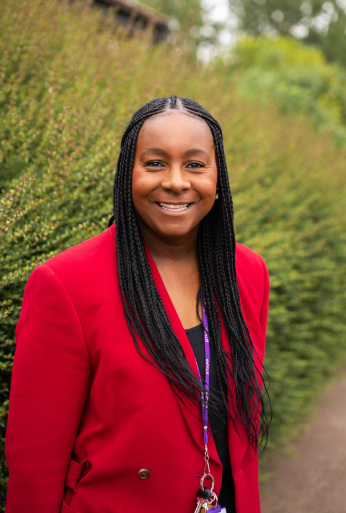Welcome
Based close to the centre of Corby, Hazel Leys Academy has a long and strong history of serving the local community and of teaching generations of families. Children from Nursery through to Year 6 learn in an environment that engages, focuses and inspires them to do well.
I am exceptionally proud to be the Principal of the Hazel Leys Academy. Our dedicated team of staff and the wider trust have one end goal – to enable every child in our academy to be the best that they can be. Children are at the heart of everything we do.
At Hazel Leys Academy, we aim to provide all pupils with a stimulating and inclusive educational environment in which everyone feels safe, respected and supported to grow and develop to their full potential.

Mrs Beverley Trotman
Principal
Our purposeful curriculum is therefore designed to give children the entitlement to:
- Knowledge - develop a rich and deep subject knowledge
- Skills - secure basic skills in reading, writing and maths
- Enrichment - develop new skills and independence through a variety of contexts and enrichment experiences
- Culture - provide a cultural, arts and sporting programme
- Aspiration - be curious learners - experiencing the engagement in, challenge and enjoyment of learning
- Diversity - gain an understanding of fundamental British Values to inform their own moral code
Our website has been designed to provide you with some useful information about our academy and as a vehicle to share with you what goes on at Hazel Leys Academy. Should you require any further information please do not hesitate to contact us.
I sincerely look forward to welcoming you and your child(ren) to the Academy.
Mrs Beverley Trotman
The academy is sponsored by the Greenwood Academies Trust (GAT), which currently has 38 academies educating over 19,000 pupils across seven local authority areas including Nottingham City, Leicester City, West Northamptonshire, Northamptonshire, Peterborough and Lincolnshire.
To find out more about the Trust please click the button below:
If you would like to find out more please contact the Academy office.
We will be delighted to welcome you to the Academy to share our vision and values, our culture and climate for learning and the aspirations we have for our community of learners.


